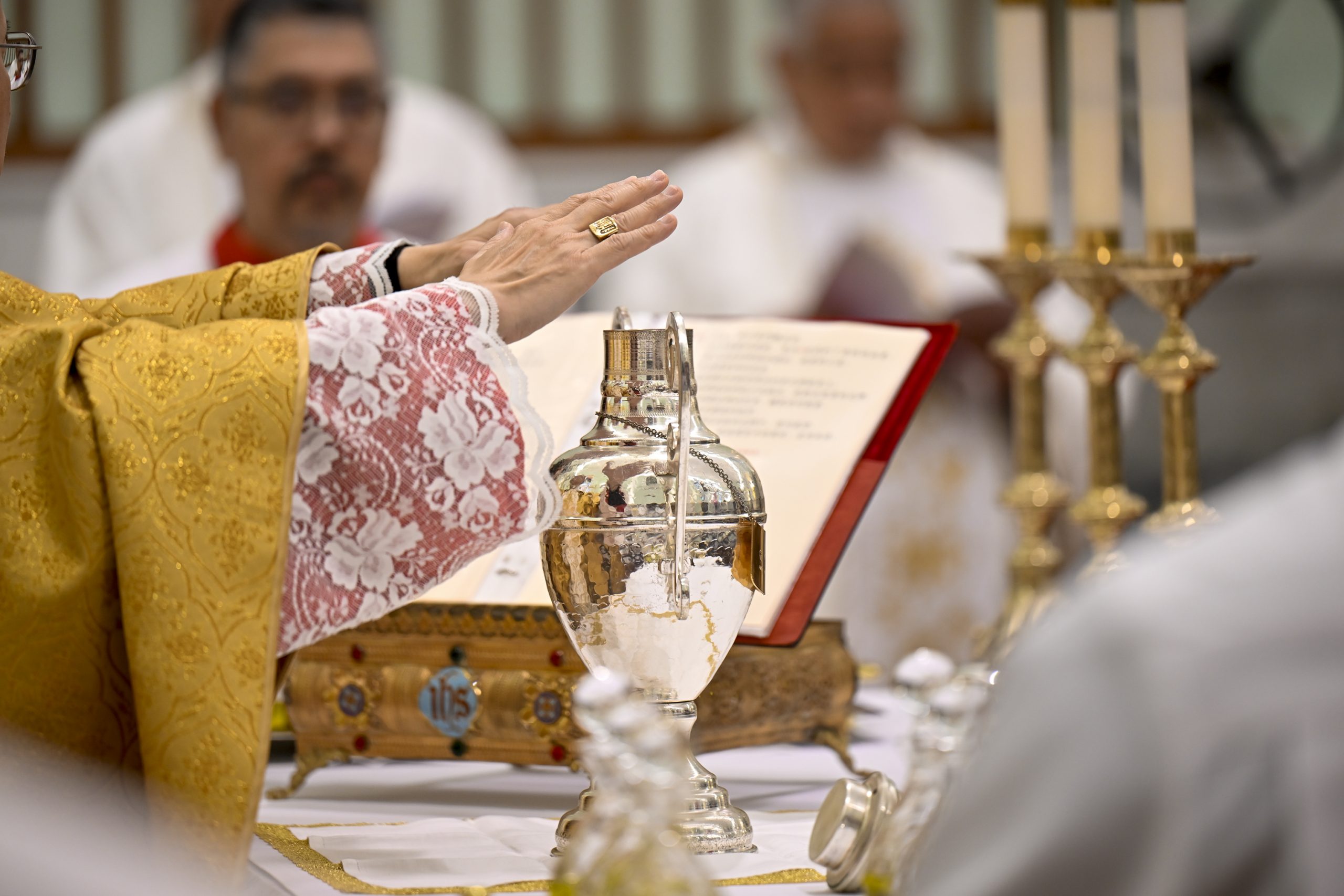Fr Paolo Consonni, MCCJ
EASTER Second Sunday Year B
“The doors of the house […] were locked for fear of the Jews, Jesus came and stood among them and said, ‘Peace be with you.’ [..] The disciples rejoiced when they saw the Lord. Jesus said to them: ‘[…] As the Father has sent me, so I send you.’ When he had said this, he breathed on them and said: “Receive the Holy Spirit. If you forgive the sins of any, they are forgiven them” (Jn 20:19-22).
There are so many reasons to lock ourselves into a dark room in fear of what is outside, much like the disciples did after Jesus’ crucifixion. The daily news constantly reminds us that we are living in a dangerous world. But to be isolated and fearful is not a good way to live. It only internalizes the chaos we see outside. Fortunately, God knows very well how to deal with chaos, as highlighted in this Sunday’s Gospel (Jn 20:19-31), which speaks of the first apparition of the Risen Christ to the disciples, paralleling the first chapters of Genesis.
In the first verses of the Bible, we read that the Spirit of God swept over the primordial chaos, and from that formless, dark void God created an ordered universe, full of light and life (Gen 1:1). During the Last Supper, Jesus formed the disciples as a loving community, permeated by the life coming from the sharing of His Body and Blood. However, after the traumatic events of Christ’s arrest and execution the disciples reverted into a state of chaos: fearful, divided (Judas betrayed, Thomas was absent), in darkness.
Yet, Christ did not remain outside the closed doors of the disciples. Having risen, He entered their chaos and restored the ‘order of love’ within the frightened community, saying: “Peace be with you”. Instantly, they became a new creation, full of life and joy: “The disciples rejoiced when they saw the Lord” (v. 21).
In Genesis, we also read that “God formed men from the dust of the ground and breathed into his nostrils the breath of life, and the man became a living being.” (Gen 2:7) Just as God breathed life into Adam, the Risen Lord breathed the Holy Spirit into His fearful disciples while sending them out to face the dangerous world they wanted to escape: “As the Father has sent me, so I send you” (v. 21). The Holy Spirit is both the “giver of life” (as we say in the Creed) but also the power that sends us to mission.
I paid special attention to the symbolism of breathing during the Chrism Mass we held at the Cathedral at the beginning of the Easter Triduum. As you know, three Oils are used in liturgy: the Oil of the Sick, the Oil of the Catechumens, and the Holy Chrism oil. During the Chrism Mass, the Oil of the Sick and the Oil of the Catechumens are blessed to serve a specific purpose in the life of the faithful, but the Holy Chrism is solemnly consecrated because it holds a central role in the Sacraments of Baptism, Confirmation, and Holy Orders, as well as for the consecration of altars and the dedication of churches.
Before reading the prayer of consecration, as the liturgy prescribes, the bishop breathed upon the opening of the vessel of the Chrism. The bishop’s breathing recalls both the action of the Spirit over the primordial chaos and the gift of the Holy Spirit given by the Risen Christ to the fearful disciples, as recalled in this Sunday’s Gospel. At Baptism, we are anointed with this Spirit-filled Chrism oil and incorporated into Christ. As the Catechism explains, “His anointing highlights the name ‘Christian,’ which means ‘anointed’ and derives from that of Christ himself whom God ‘anointed with the Holy Spirit’” (CCC 1289).
A simple breath of the bishop indeed carried deep theological meaning. What I want to emphasize is that, through the liturgy of the Chrism Mass, I came to understand that the experience of the disciples on Easter day is fully accessible to us; it already occurred on the day of our Baptism! The Holy Spirit was given to us through the anointing with the Chrism and we too were sent out to bring God’s mercy and forgiveness into a dangerous and messy world: “If you forgive the sins of any, they are forgiven them” (v.23).
It is not surprising that some ancient spiritual writers saw a connection between the etymology of the Greek word “elaion” (oil) and the word “eleos” (mercy). Every time we entrust our fear to God, and strive to overcome the forces of division and isolation through acts of mercy, we fully live the Grace we received at our Baptism. This Grace is stronger than the chaos we experience both within ourselves and in the world around us. Out of isolation and full of hope: this is a good way to live.


 Follow
Follow


